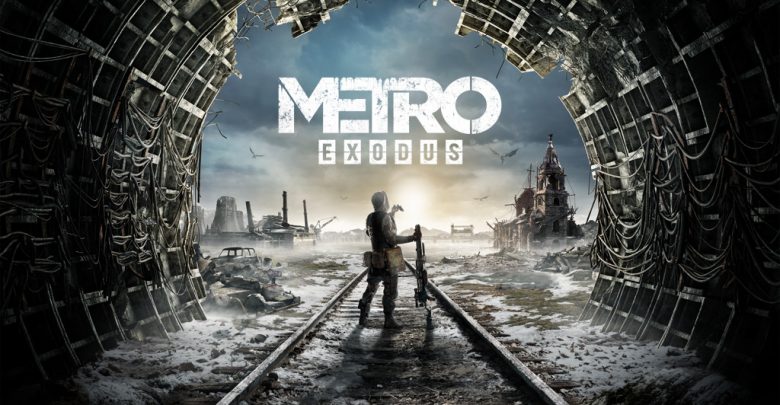Video Game Review: Metro Exodus
 Metro Exodus
Metro ExodusDeveloped by 4A Games
Published by Deep Silver
Released on February 15, 2019
While much was said throughout 2018 about “the death of AAA single-player games,” Metro Exodus stands out as a beautiful, engrossing, and meticulously designed experience that should decisively put those fears to rest.
In the decades since the Last War, the Metro Exodus world has been plunged into a seemingly endless nuclear winter. Mutated creatures and violent human factions have ravaged the post-apocalyptic world, and small pockets of survivors have taken refuge in the Moscow Metro.
After uncovering a military conspiracy, former Spartan Ranger Artyom and his wife Anna discover the existence of survivors out in the thriving wilderness. Commandeering the train locomotive “Aurora” along with their Ranger allies, they flee the Metro and travel eastward across Russia to rebuild civilization.
Exodus is the third installment in the Metro video game series, acting as a sequel to Metro 2033 and Metro: Last Light. The Metro series is originally adapted from the book series created by Dmitry Glukhovsky, who promotes a shared literary universe of different authors, settings, and genres set within the Metro world.
Whereas previous Metro games had been linear first-person shooters set within the claustrophobic tunnels of the Moscow Metro, Exodus broadens its horizons by introducing open-level designs set above ground. New locales include muddy wastelands, overgrown villages, and desert outposts, complete with dynamic day/night cycles and weather systems.
With these larger environments, exploration becomes essential, both for scavenging ammunition and supplies and for facilitating greater player expression in how to approach enemy encounters.
Yet where Exodus truly shines is in those quiet moments of introspection while the player traverses the Russian landscape alone — scavenging for bullets amidst dilapidated warehouses and abandoned villages; encountering supernatural phenomena at night while avoiding packs of Lurkers; watching the murky rain ripple across the Volga River while winged demons fly overhead.
In these melancholic moments, Metro Exodus creates a palpable atmosphere, allowing players to naturally uncover the hidden beauty of a destroyed and renewed world.
In its dedication to immersion, the Metro series has always excelled in making the player feel like they’re in a natural and responsive world. Most of your user interface is displayed in real-time on physical in-game objects.
Weapons will accumulate dirt and grime over time, overheating or jamming until they are cleaned. Even your gas mask requires you to replace your air filters, quickly repair breaches with duct tape, and manually wipe off mud and blood splatters.
While it includes a catalogue of popular gaming clichés that are prevalent throughout the AAA industry, Exodus maintains its unique identity: an adherence to player immersion, story, and atmosphere that brought critical acclaim to previous Metro games.
All in all, Metro Exodus becomes a whole greater than the sum of its parts, and will no doubt scratch that singleplayer itch amidst the plethora of online-only multiplayer shooters. In spite of its high production value and next-gen graphical fidelity, Exodus still feels like the work of that 2010 team of scrappy Ukrainian developers who set out to make Metro 2033 with a distinct vision and creative passion.




